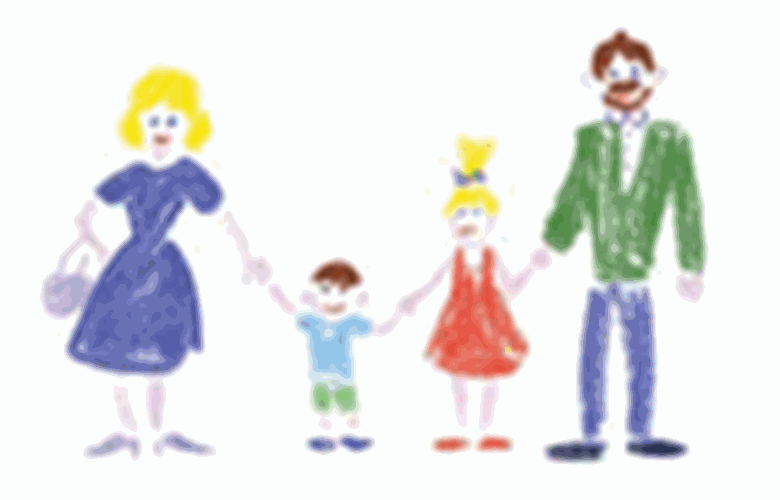Married with 2.4 children no longer 'typical family'
Catherien Gaunt
Tuesday, December 6, 2011
Eight out of ten people would describe their family as not 'traditional', according to new research which suggests the family of two married parents with 2.4 children is no longer the norm.

A new think-tank called the Centre for the Modern Family, launched today, suggests that more than half of British families feel their family is unrepresented by politicians, the media, and advertising, who as a consequence do not take their family set-up into account.
Fifty-seven per cent of people no longer believe that a couple with children have to be married to be a family, 77 per cent believe that single parents can be ‘a proper family’, and 59 per cent believe that same sex couples can be a family.
However, a significant minority do not hold these views. A third believes that a couple should be married to be a family, and a similar number do not consider same sex couples to be ‘a proper family’. Seventeen per cent hold the same views about single parents.
The findings are based on in-depth telephone interviews with 3,000 adults. The researchers say it is the first report of its kind that looks at attitudes to family life.
The Centre for the Modern Family is made up of experts in family life, including Professor Tanya Byron, Dr Samantha Callan from the Centre for Social Justice, Dr Katherine Rake, chief executive of the Family and Parenting Institute, and Dr Husna Ahmed, CEO of the Faith Regen Foundation.
Professor Tanya Byron said, ‘Family is the spine of society. Everyone comes from a family, everyone has an opinion on family, and without this vital support network many of us would simply break.
‘At a time of continued social change and as the financial squeeze on families gets even tighter, the Centre for the Modern Family aims to improve understanding, and ultimately strengthen families - in all their varied forms - across the country.’
Lord Leitch, the centre’s chair, said, ‘As a business established to support families, Scottish Widows has created a new think-tank to help us better understand the complex support networks that we draw on throughout our lives.
‘This research raises a number of important issues about British families. The Centre for the Modern Family has been created to address these important issues which have such a huge affect on society.’
Happy families? Ten new family types
Onederfuls
Young, single and with few close family relationships. Happy with their family set-up but feel poorly portrayed by the media.
Modern classics
Typically an unmarried couple with a young family of their own. They believe that society is moving away from ‘2.4 children’, but still have a more traditional family structure.
Born and Red
Many in this group are married or cohabiting with children but believe that family is changing and are very open about what ‘a proper family’ should be, particularly around same-sex couples and single parents.
Middletowners
Usually affluent, thye tend to be married with grown-up children and are close to their own parents. They feel their family set-up is typical and feel well catered for by Government and business, and portrayed well in the media. They do not think that society is out of date with its view of families.
Deconstruction workers
Likely to be middle-aged divorcees, coping well, but do not feel that their family is catered for by society.
Critical mass
Likely to be single or single parents, struggling to cope financially and feel excluded by society. They aspire to marriage but feel their circumstances make this unachievable.
Groan Ups
Made-up of older generations, with a traditional view of family. They feel typical but believe that society is increasingly ignoring the 2.4 family.Old Loud and Prouds
Mainly retired, they are coping well financially and feel valued by society. They hold traditional views, which are shared by their families.
New Traditionalists
Made up of ethnic minorities, this group places a strong emphasis on cultural heritage, marriage and close-knit family relationships.
Once Upon a Timers
Strong supporters of traditional family models, they are younger and many are from ethnic minorities, religious and close-knot families. This group emphasises the importance of marriage in making a proper family, but believes that society undervalues this.




